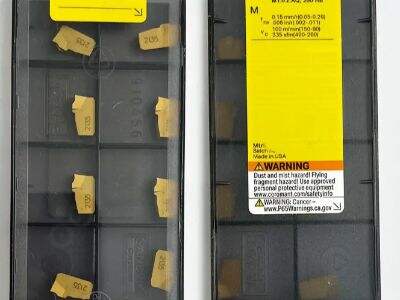Standard use of a CNC machine, as you probably already know, is that precision is paramount. Accuracy refers to how exact your machine is in cutting and shaping it, which is critical in producing quality products. This accuracy can only be attained by careful setup and calibration of your tools. You can either create a really good product or you get into serious problems that can destroy your work by doing this. This guide will provide some powerful tips on how to set up and calibrate CNC tools with Huazhichun high-quality products.
Tips for Setting Up CNC Tools
You should always ensure your CNC tools are clamped firmly when setting up. Clamping is a term for holding the tool fixed so it does not slide around as the machine is working. Vibrations may alter your measurements in case the device is not tight. This may cause errors in the cuts or shapes you are attempting to produce. To prevent this, ensure that the correct clamping force is used, i.e. the force at which you grip onto the tool. The right toolholder for your tool is needed. Think of the toolholder as a grip for your tool that maintains it in a certain position.
After securing your tool, you have to understand the tool’s configuration and dimensions very well. This will involve understanding how wide the tool is, what angles it has and the lengths of the cutting edges. All of these measurements are critical as they will allow you to set the proper speeds and feeds for your tool. Speeds are how fast the tool spins and feeds are how fast the tool moves through material. When it has the correct measurements, your instrument can function to its best potential. It can also produce accurate results.
Best Practices Guide: Calibrating CNC Tools
Calibration is just a fancy word for getting a CNC machine to do pretty much what it is intended to do. The act of calibrating is actually checking and correcting your machine to identify the position of the tool to the workpiece accurately. This one is really vital in order to make sure everything is in alignment. And so here’s a step by step way to calibrate your CNC machine:
Step 1: Install probes for machine A machine probe is a useful measuring device that helps your CNC machine precisely locate your workpiece. Machine probes come in many varieties, but their basic function is always the same. They guide your machine on where to start and precisely how to move.
Step 2: Use some sort of a gauge block to calibrate your Probe. A gauge block is a standardised small block with an accurately known height. You will set the gauge block on the work table of your machine. Then measure the height of the gauge block with your machine probe. From there, you need to calibrate your machine so that the height is read correctly. This step is essential to make sure your machine knows how far the measurements are.
Step 3: Run a probing cycle. That is running a set of measurements using the software of your machine. Your machine will probe the workpiece and capture measurements to learn where everything is located. This will enable the machine to understand the dimensions of the workpiece.
Fourth step: Tweak your machine’s settings. Now that your machine has gotten through the probing cycle you might want to adjust/improve its configuration. This is so that it is generating the accurate outputs based on what it has only just learned in the probing cycle.
 EN
EN
 AR
AR
 BG
BG
 HR
HR
 CS
CS
 DA
DA
 NL
NL
 FI
FI
 FR
FR
 DE
DE
 EL
EL
 IT
IT
 JA
JA
 KO
KO
 NO
NO
 PL
PL
 PT
PT
 RU
RU
 ES
ES
 SV
SV
 IW
IW
 ID
ID
 LV
LV
 LT
LT
 SR
SR
 SK
SK
 SL
SL
 UK
UK
 SQ
SQ
 ET
ET
 HU
HU
 TH
TH
 TR
TR
 FA
FA
 AF
AF
 MS
MS
 MK
MK
 KA
KA
 UR
UR
 BN
BN


